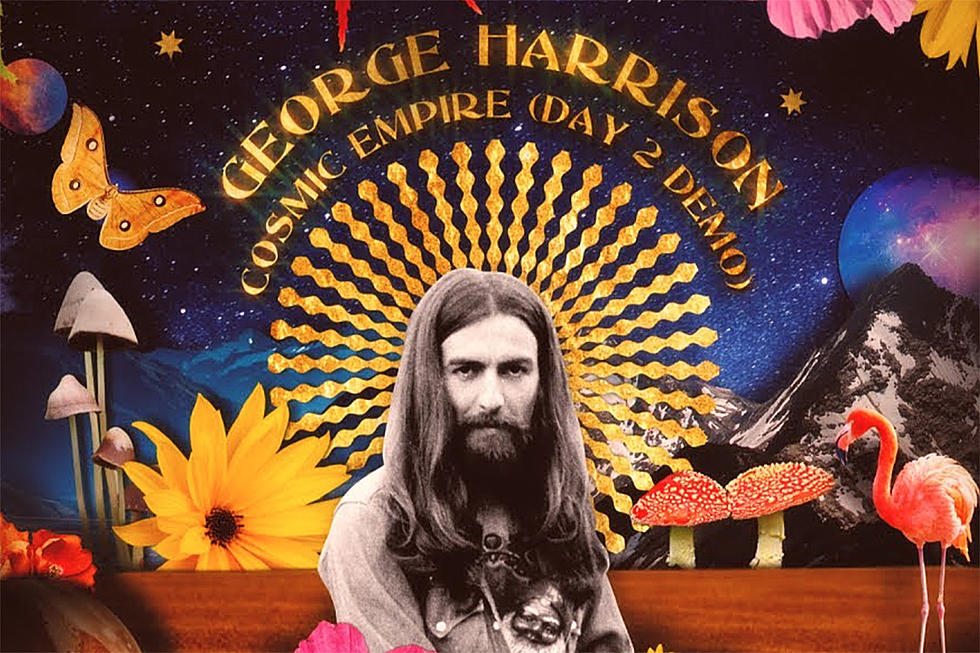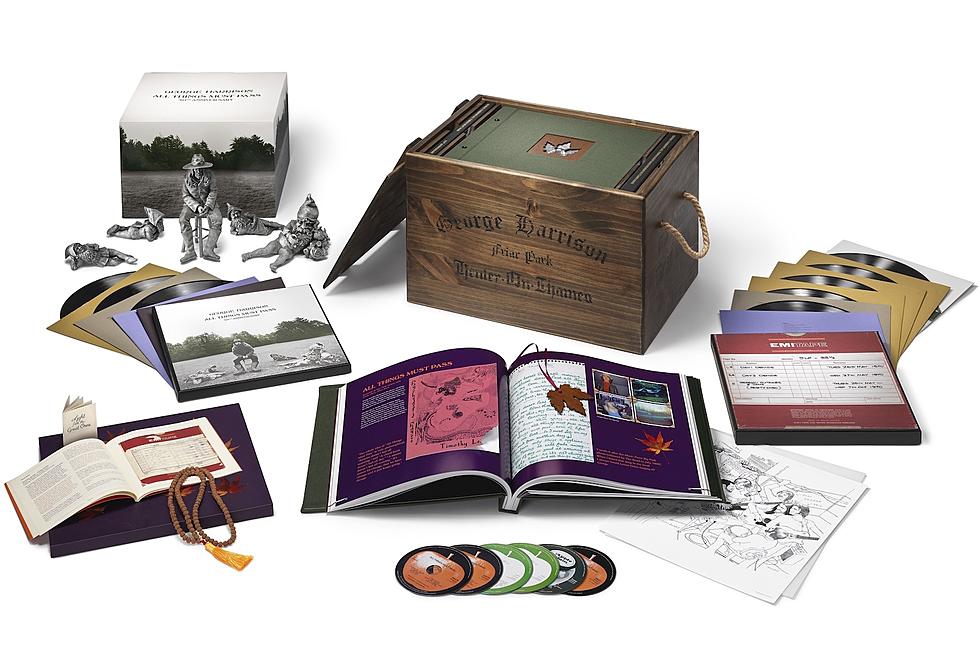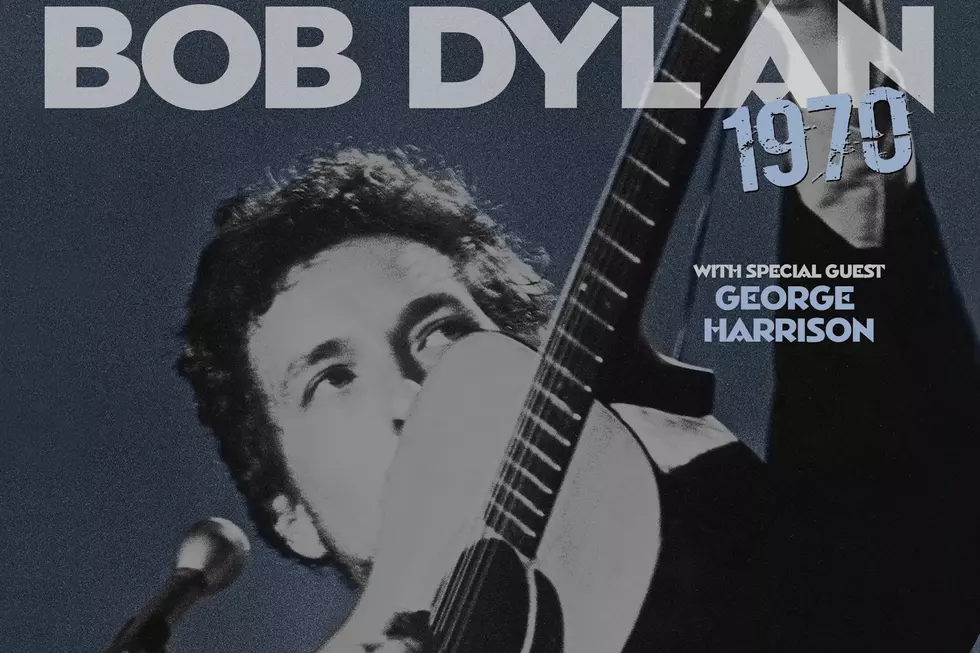
The Rise and Fall of George Harrison’s ‘My Sweet Lord’
"My Sweet Lord" is a roller coaster of a song – and not just because of an arrangement that soars from George Harrison's simple acoustic figure to an utterly thunderous chorus.
It arrived on Nov. 23, 1970, as Harrison's highly anticipated debut solo single. Then it became the first No. 1 song by a former member of the Beatles on Dec. 26. Then the subject of a headline-grabbing plagiarism suit. Then the sunny last statement from a dying star.
A throwback wall-of-sound recording that challenged listeners to open their hearts while brushing aside religious differences hardly seemed destined for such success, controversy or longevity. Harrison said he was originally inspired by a funky gospel reworking of an 18th-century hymn called "Oh Happy Day," which the Edwin Hawkins Singers took up the charts in 1969 as he toured Europe with Delaney & Bonnie.
"It really just knocked me out, the idea of that song and I just felt a great feeling of the Lord," Harrison said in Off the Record 2: The Dream Is Over, recalling how inspiration struck in a dressing room on the road. "So, I thought, 'I'll write another 'Oh Happy Day," which became 'My Sweet Lord.'"
At this point, Harrison was still officially a member of the Beatles – and that meant parceling his songs out at a pace of two or so per album. So once Harrison got to a stopping point, he gave "My Sweet Lord" away: The first released version, by recent Beatles collaborator Billy Preston, appeared on September 1970's Encouraging Words.
In truth, however, the group was falling apart around Harrison. Before long, he'd taken back "My Sweet Lord" for what would become All Things Must Pass, his first post-Beatles solo project. (He titled the three-album set after another song the others had rejected.) Suddenly, Harrison had set an improbable new course.
Listen to the Edwin Hawkins Singers' 'Oh Happy Day'
He wasn't traveling alone. Ringo Starr, Eric Clapton and members of Badfinger were also part of the overstuffed session. Yet, somehow, "My Sweet Lord" feels simple – "like one huge guitar," Harrison said in Off the Record 2.
He and co-producer Phil Spector arranged the players as if conducting a shaggy-haired turn-of-the-'70s rock orchestra. "We had two drummers, a bass player, two pianos and about five acoustic guitars, a tambourine player and we sequenced it in order," Harrison noted. "Everybody plays live in the studio. I spent a lot of time with the other rhythm guitar players to get them all to play exactly the same rhythm, so it just sounded perfectly in sync. The way we spread the stereo in the recording, the spread of five guitars across the stereo, made it sound like one big record."
"My Sweet Lord" maintained momentum after its quick ascent, becoming the biggest-selling U.K. single for 1971. That prompted Harrison's former bandmate John Lennon to tell Rolling Stone: "Every time I put the radio on, it's 'Oh My Lord.' I'm beginning to think there must be a God."
Meanwhile, officials at the Bright Tunes publishing house, owners of the copyright for the Chiffons' 1963 chart-topper "He's So Fine," heard something that sounded familiar. They filed an infringement suit over "My Sweet Lord" that February.
"I wasn't consciously aware of the similarity when I wrote the song," Harrison subsequently argued. "But once it started to get a lot of airplay, people started talking about it, and it was then I thought, 'Why didn't I realize?' It would have been very easy to change a note here or there and not affect the feeling of the record."
He attempted to settle out of court, but Bright Tunes continued seeking a complete surrender of Harrison's copyright for "My Sweet Lord." The case didn't come to court until February 1976, when the songs were analyzed down to specific notes and motifs. Things went on so long, Harrison joked that "I started to believe that maybe they did own those notes."
Listen to George Harrison's 'My Sweet Lord'
The judge agreed, finding Harrison guilty of "subconscious plagiarism" in August 1976, while awarding Bright Tunes $1.6 million in damages. The public rebuke inspired Harrison to release "This Song," a Top 25 hit that poked fun at the idea of accidentally stealing someone else's tune. It also prompted a three-year retreat from the music business.
"It's difficult to just start writing again after you've been through that," Harrison told Rolling Stone in 1979. "Even now when I put the radio on, every tune I hear sounds like something else." In a weird turn of events involving his former manager Allen Klein, Harrison ended up later being granted ownership of Bright Tunes. "After 20 years, eventually the judge awarded the song to me – and the money that had been taken for 'My Sweet Lord,'" Harrison told Billboard in 2000. "So, I suddenly end up with 'He's So Fine'!"
He updated "My Sweet Lord" for an expanded anniversary reissue of All Things Must Pass in 2000, giving the old song a bright new shine. "Yeah, it's more up, and more of how I am now," Harrison added, "and the old version's on there anyway, so nothing's lost."
He died of cancer just months after the remake's January 2001 release, but remained proud until the end of how its message of faith continued to resonate across the generations.
"I've never had any money from the song," Harrison later told Performing Songwriter. "It's always been in escrow. As far as I'm concerned, the effect the song has had far exceeds any bitching between copyright people and their greed and jealousy."
Beatles Solo Albums Ranked
You Think You Know the Beatles?




